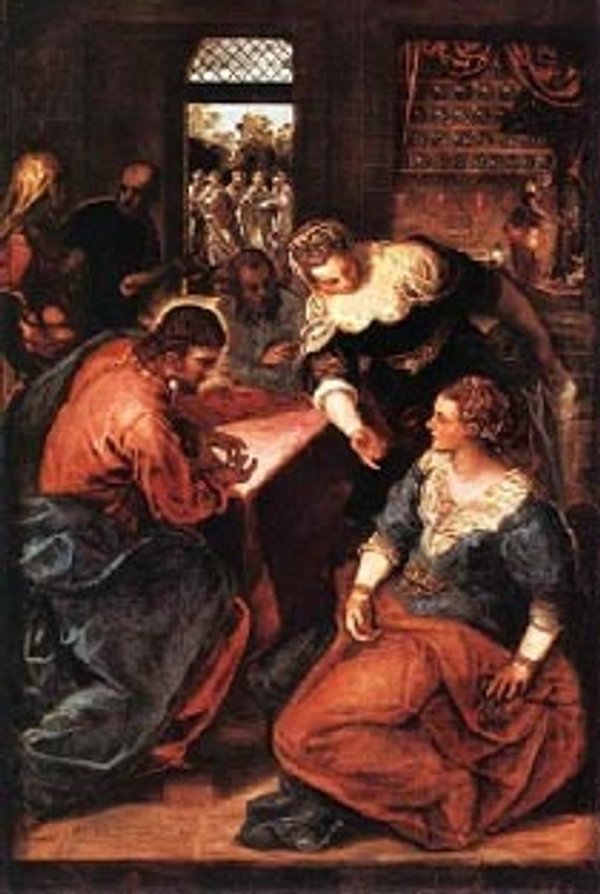Yesterday we recalled the triumphal entry of Christ into Jerusalem. A multitude of disciples and other people acclaimed him as Messiah and King of Israel. At the end of the day He was tired and returned to Bethany, a village close to the capital where he used to stay when he visited Jerusalem.
There he always found a family of friends ready for Him and his disciples. Lazarus, whom He had raised from the dead, was head of that household; Martha and Mary, his sisters, lived there too. They were eager to receive Him and happy to provide their services.
In the last days of His earthly life, Jesus spent long hours devoting Himself to an intense schedule of preaching in Jerusalem. When night came, he recovered His strength in the house of his friends. It is in Bethany that the scene of today’s Gospel took place.
“Six days before Passover,” St. John relates, “Jesus went to Bethany. They had dinner there; Martha served, and Lazarus was one of those reclining at table with him. Mary took a pound of ointment, genuine nard of great value, and anointed the feet of Jesus, and with her hair wiped his feet dry. And the house was filled with the fragrance of the ointment.”
The generosity of this women leaps into view right away. She wants to show her gratitude to the Master for having brought her brother back to life and for so many other benefits she had received from Him. There was no way to repay them. Judas, present at the dinner, calculates exactly the price of the ointment.
But rather than praising Mary’s refinement, he gives himself to criticism: “Why was this ointment not sold for three hundred denarii, and given to the poor?” But as St. John observes, the poor were of no consequence to him; he was interested in managing the money and stealing it from the purse.
“Jesus’ own reaction is completely different,” John Paul II writes. “While in no way detracting from the duty of charity toward the needy, for whom the disciples must always show special care-‘the poor you will always have with you’-He looks toward his imminent death and burial, and sees this act of anointing as an anticipation of the honor which his body will continue to merit even after his death, indissolubly bound as it is to the mystery of his person” (Ecclesia de Eucharistia, 47).
In order to be a true virtue, charity has to be ordered. God occupies first place: “Thou shalt love the Lord thy God with thy whole heart and with thy whole soul and with thy whole mind. This is the great and the first commandment. And the second is like to it: Thou shalt love thy neighbor as thyself.”
On these two commandments depend the whole Law and the Prophets. Therefore those are in error who-with the excuse of relieving the material needs of men-do not consider the needs of the Church and of the sacred ministers. St. Josemaría writes: “That woman in the house of Simon the leper, in Bethany, who anoints the Master’s head with a rich perfume reminds us of the duty to be unsparing in the worship of God. All that splendor, majesty and beauty seems little to me. And contrary to those who attack richness in sacred vessels, vestments, and paintings, one hears the praise of Jesus: ‘opus enim bonum operata est in me’-she has done a good thing for me.”
How many would side with Judas! They see the good that others do, but they don’t want to recognize it; they devote themselves to finding twisted intentions, criticizing, and complaining, making ill-founded judgments. They would reduce charity to something purely material-giving donations to the needy, perhaps to quiet their consciences-forgetting that, as St. Josemaría also writes, “Christian charity is not limited to providing the needy with economic welfare; it is primarily directed toward respecting and understanding each individual as he is, his intrinsic dignity as a human being and a child of the Creator.”
The Virgin Mary gave herself completely to Our Lord and was always ready to serve men. Today let us ask her to intercede for us, that in our own lives, love for God and for our neighbor unite into one, like the two sides of a coin.
